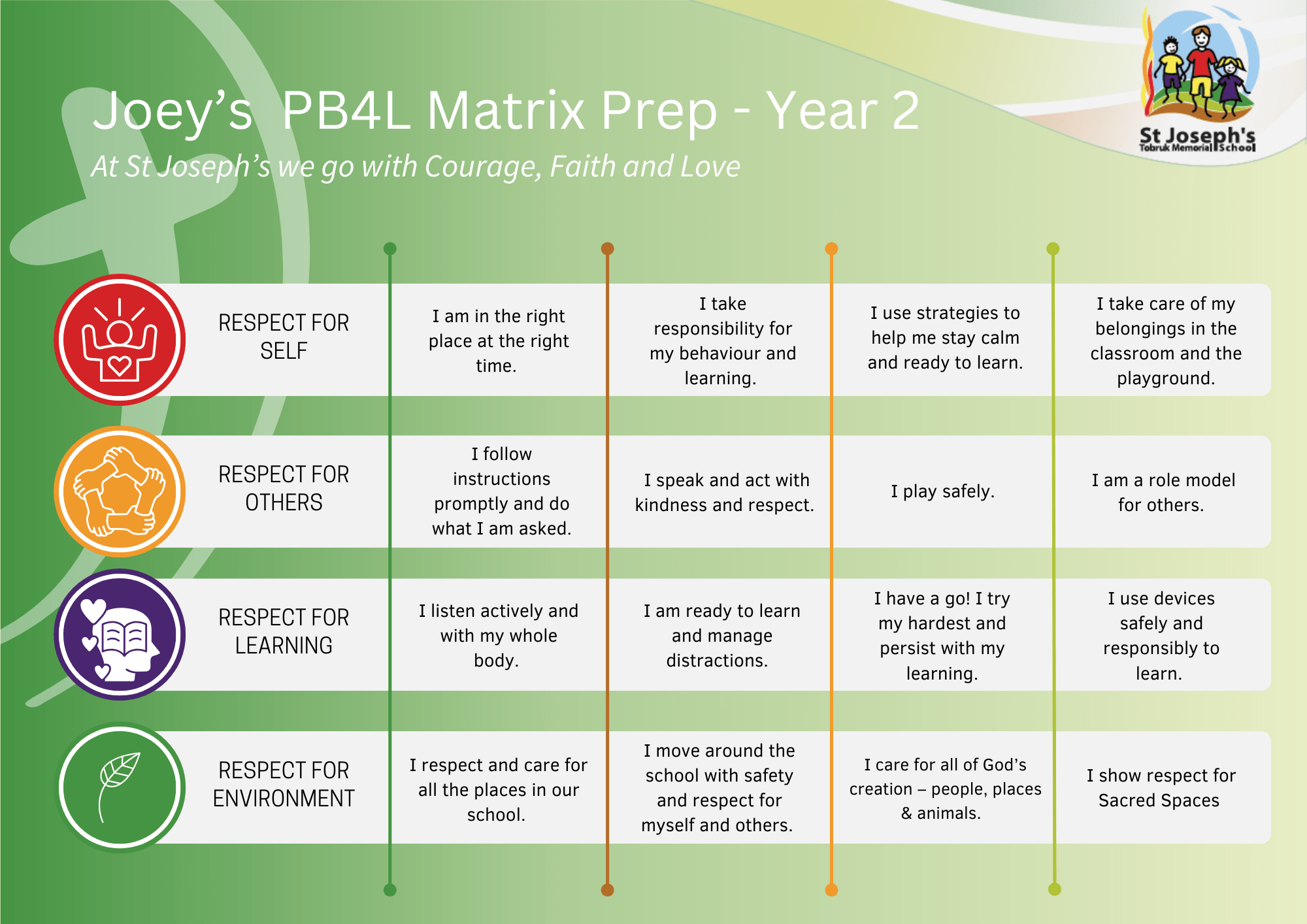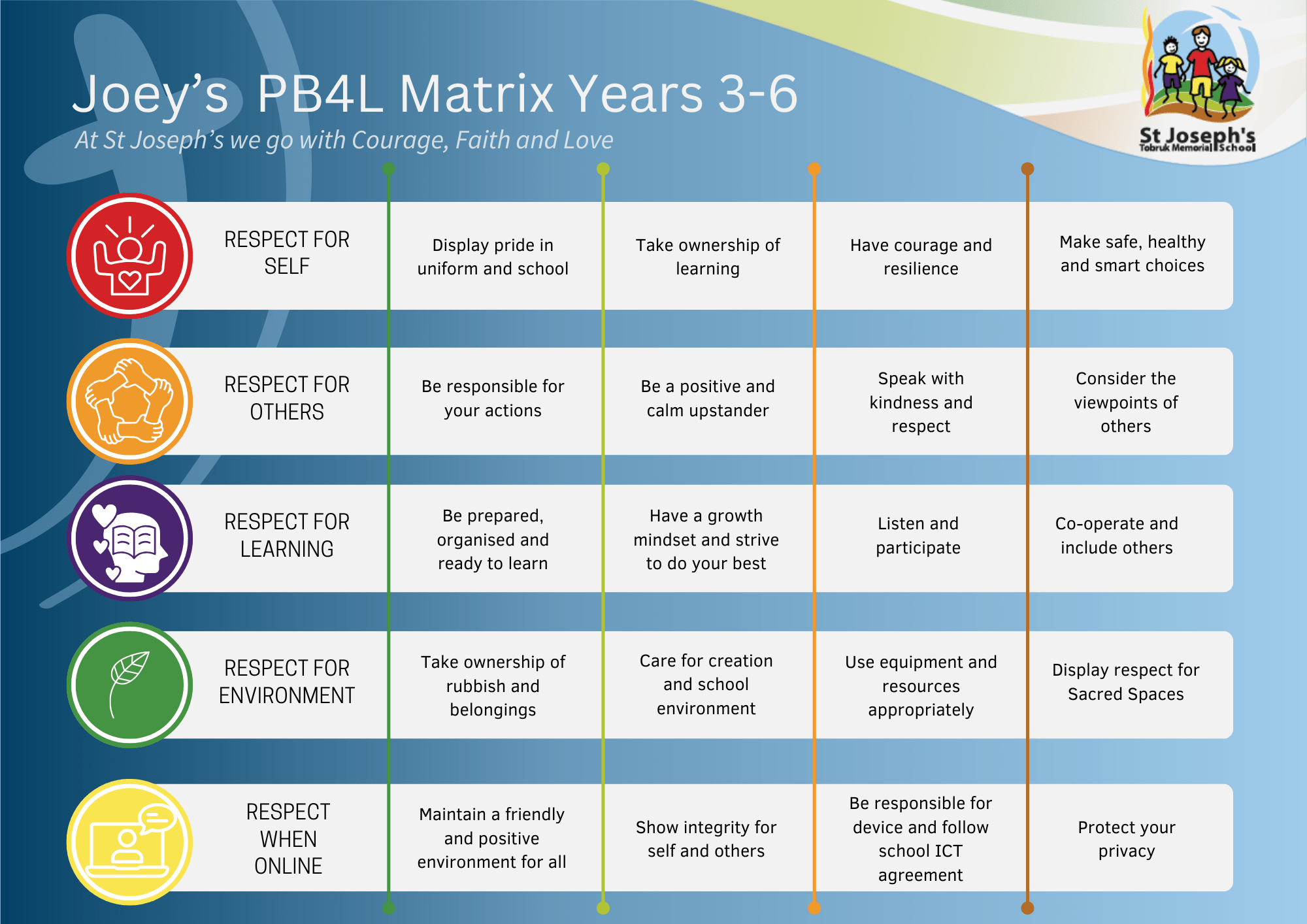Positive Behaviour for Learning (PB4L) is a framework for schools that use a systematic approach to positive behaviour supports for all students. The aim of implementing the framework is to achieve increased academic and social progress and achievement for all students by using evidence-based practices. One of the focus areas is explicit teaching of behaviours that assists students to access learning – academically and socially - at all stages of development throughout their education.
An important component of PB4L is the adoption of a continuum of behavioural supports that, like academic instruction, acknowledges that students will need differing levels of behavioural interventions and supports to be successful at school. Within the continuum there are three levels of support.
At St Joseph's Tobruk Memorial School, there is a whole school approach to behaviour applying principles, practices and processes aligned with PB4L, Zones of Regulation and the Student Behaviour Support Plan. Student behaviour is managed in a variety of ways and is supported by the Leadership Team, Support Teacher-Inclusive Education (ST-IE) Primary Learning Leader (PLL), Guidance Counsellor and Team Teachers. All staff play a vital role within the school explicitly teaching and acknowledging positive behaviours.
Our whole school approach to positive behaviour includes 4 key practices:
1. Clarity: Our Expectations
School-wide expectations encourage consistent communications and establish a common language of expectations for all staff and students and across all settings. Agreed upon student expectations promote the school's Catholic Identity and provide consistency across the staff and school community.
Our expectations are:
- Respect for Self
- Respect for Others
- Respect for Learning
- Respect for the Environment
2. Focus: Teaching Expected behaviour
Effective instruction requires more than providing the rule – it requires instruction, practice, feedback, re-teaching, and encouragement (Sprague & Golly, 2005). Instruction takes place each day, throughout the day, all year long.
3. Feedback: Encouraging Productive Behaviours for Learning
Our school encourages and motivates students, both as they are learning the expected behaviours and then to maintain those skills and dispositions as students become more fluent with their use. Specifically, our school encouragement system utilises effective, specific positive feedback, adult attention (contingent and non-contingent) and a tangible reinforcement system.
4. Feedforward: Responding to Unproductive Behaviours
Even with our positive approach to teaching and supporting expected behaviours for learning, unproductive student behaviour will still occur. For some students, they do not know how to perform the expected behaviour, or don't know it well enough to routinely use it at the appropriate times. For some students, the maladaptive behaviours they are using appear to meet their needs. When responding to unproductive behaviours, all staff take a calm, positive, supportive approach that builds, maintains, and sustains relationships with students.


© Brisbane Catholic Education, St Joseph's Tobruk Memorial School (2025)